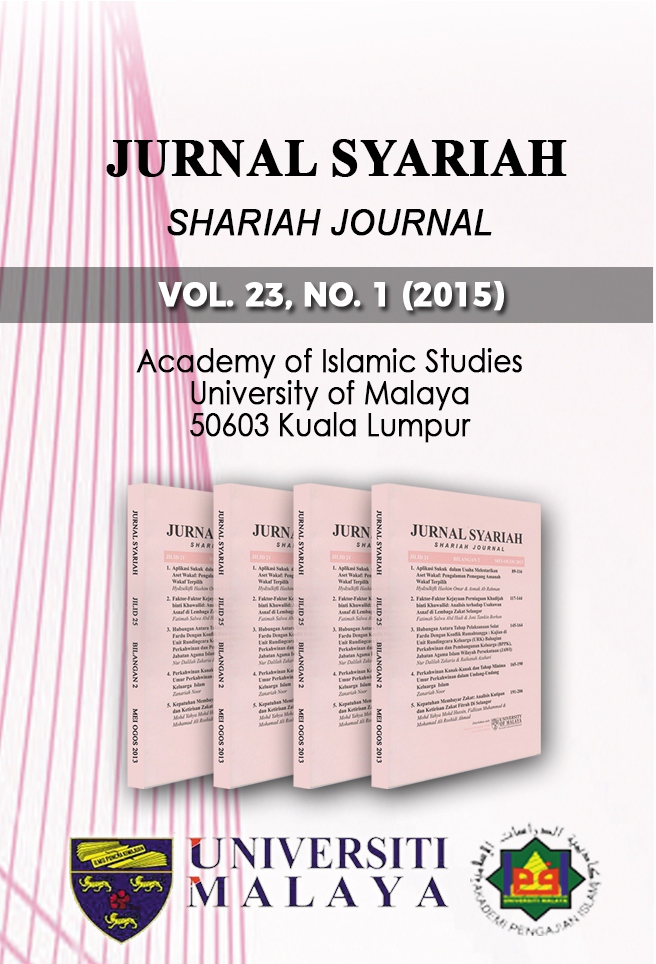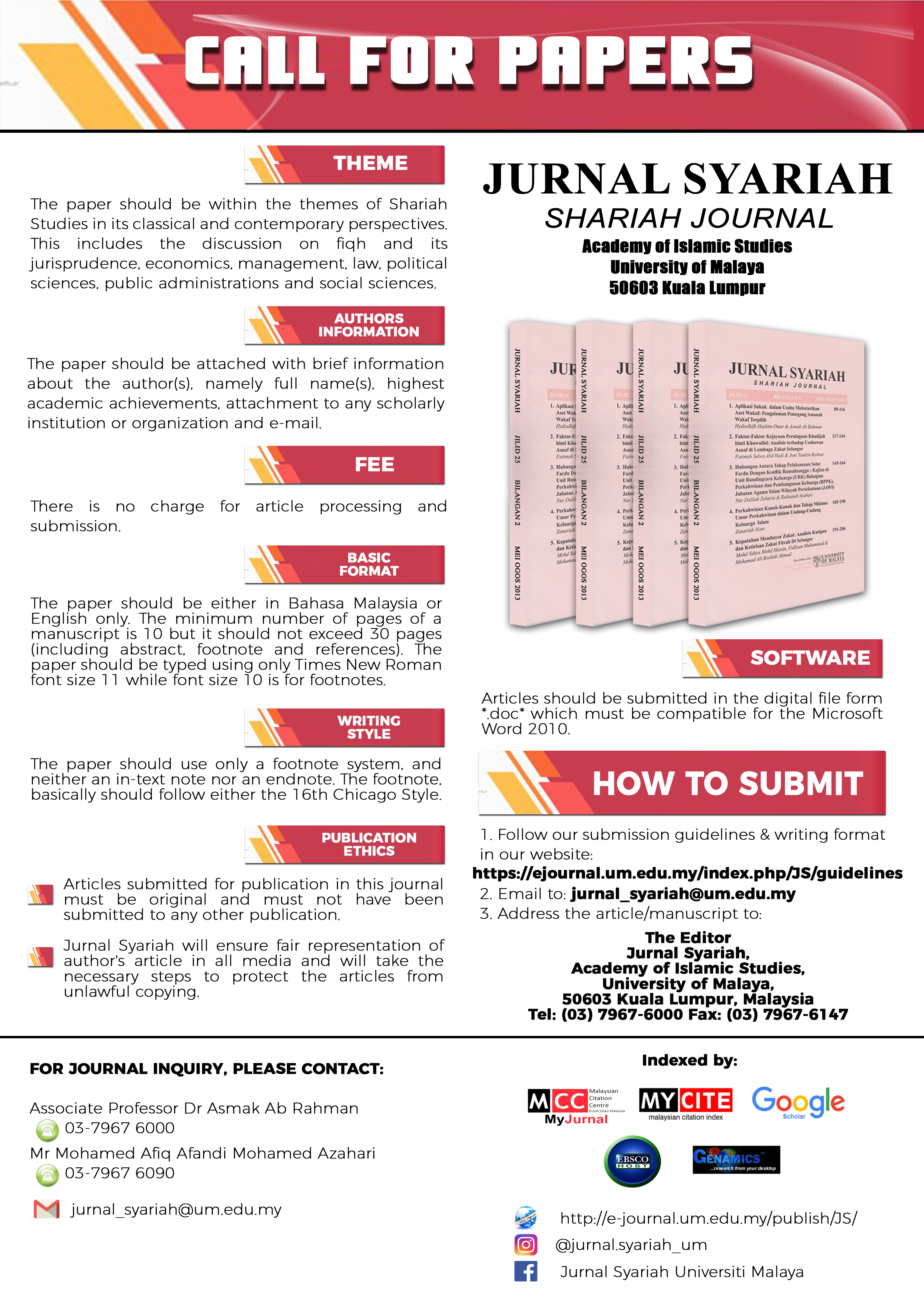CHALLENGES IN IMPLEMENTING ISLAMIC BANKING AND FINANCE IN NIGERIA: A LEGAL INSIGHT
DOI:
https://doi.org/10.22452/js.vol23no1.6Keywords:
Christian-Muslim peaceful and prosperous co-existence, 1999 Nigerian Constitution, legal pluralism, Islamic banking and financeAbstract
God’s Laws, as contained in the Scriptures, form the nucleus of society. They are therefore a veritable social mechanism for enhancing Christian-Muslim partnership. This is especially true in economic relationships, such as Banking and Finance in the pluralist society of Nigeria; as Islamic Banking and Finance (IBF) is now accepted in non-Muslim nations worldwide. The licensing by the Governor of the Central Bank of Nigeria in 2011 of the then Jaiz Bank International PLC, the first fully fledged Islamic Bank in Nigeria, triggered a soaring Muslim-Christian relationship. The methodology of concurring provisions of the Quran and the Bible on the subject of finance; and inferences to the acceptance of IBF by non-Muslim nations can be used to harmonize application of IBF in society. The objective is to create a conducive legal, economic and social atmosphere for the smooth, acceptable and uncontroversial operation of IBF through demonstration of the scriptural and international unity on IBF. It is also to enhance peace, unity and prosperity in Nigeria as obtained in other pluralist and secular environments worldwide. The study proved that all scriptural laws have the common goal of ensuring societal prosperity, good health and peaceful coexistence. The IBF symbolizes and seeks to provide those benefits in Nigeria, as are obtained in other jurisdictions sharing the legacy of legal and judicial pluralism founded during the period of British colonial rule.
Downloads
Downloads
Published
How to Cite
Issue
Section
License

This work is licensed under a Creative Commons Attribution-NonCommercial 4.0 International License.
COPYRIGHT: All rights reserved. Not allowed to be reproduced any part of articles and contents of this journal in any form or by any way, whether electronic, mechanical, photocopying, recording or otherwise without permission in writing from the Chief Editor, Jurnal Syariah.



















